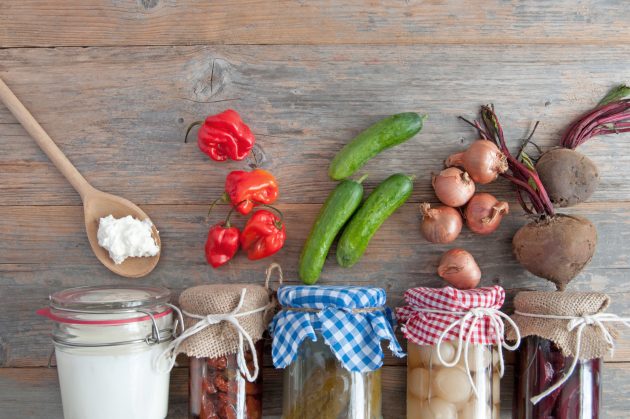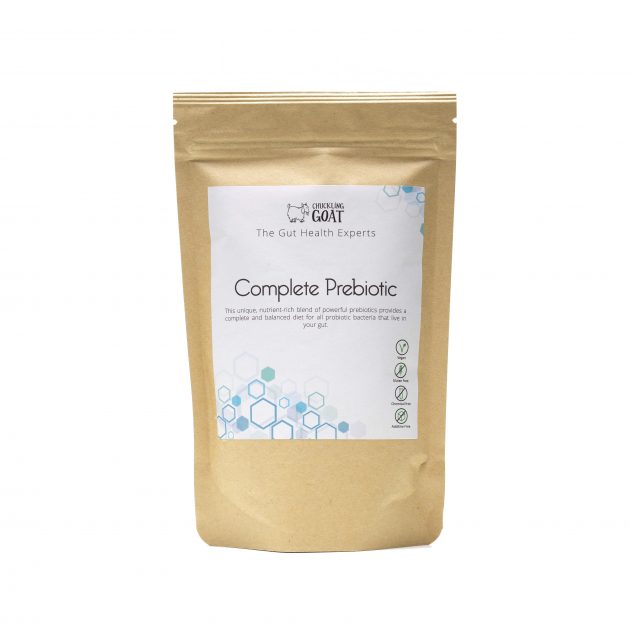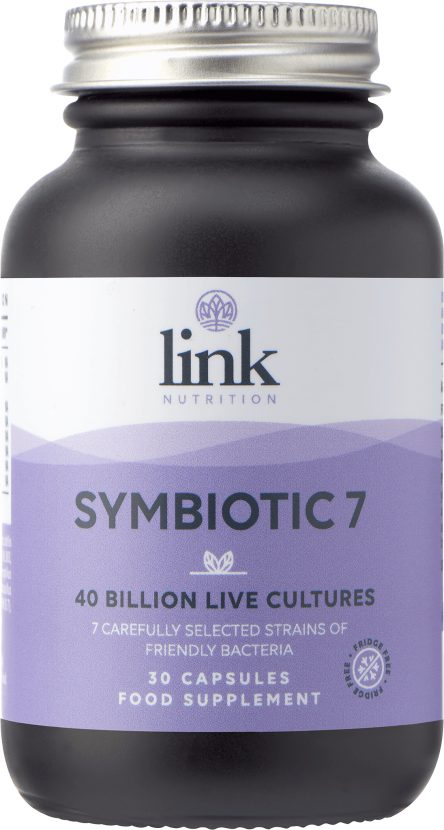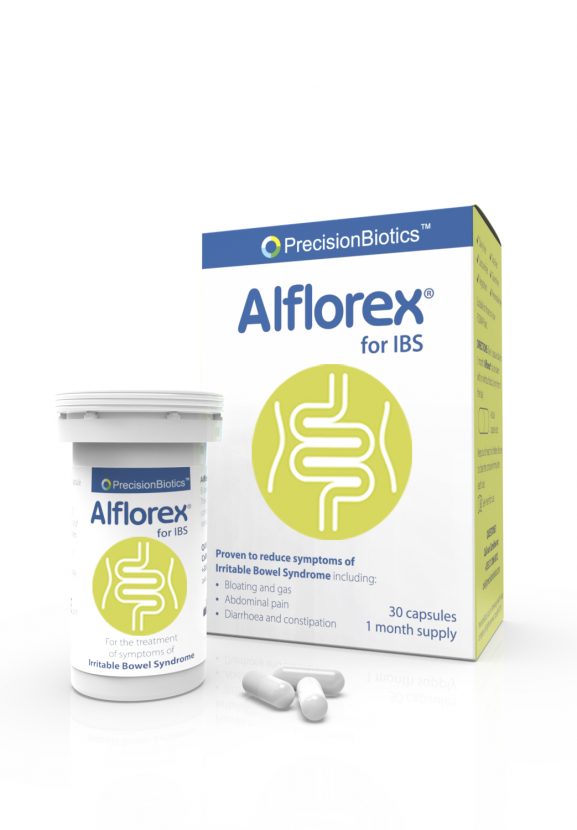Prebiotics vs probiotics - what's the difference and what can they do for you? We ask the experts to shed light on these important components of gut health
Prebiotics Vs probiotics - what's the difference and what can they do for you?

With increasing evidence to suggest probiotics and prebiotics could have a beneficial effect on your health, we explain how they work...
Gut health has made major headlines over recent years, and for good reason. A healthy gut is said to boost our immune system, help us maintain a healthy weight and even improve our mood. Plus, there are the obvious benefits of reduced bloating and a smoother digestive process. Sound appealing? We ask the experts what it really takes to keep our guts happy and get to the bottom of what makes probiotics and prebiotics different.
Rob Hobson, a nutritionist firstly explains why your microbiome matters:
“Bacteria exist in and around our body and are referred to as the microbiome. The diversity of bacteria in it is personal to each individual and most reside in the gut, forming a defensive barrier against foreign invaders harmful to health,” says Rob.
“Taking a daily probiotic supplement is a good way to maintain beneficial bacteria in your gut, as is eating a range of healthy, unprocessed foods.”
Probiotics vs prebiotics: what is the difference?
Many of us are familar with probiotics even if we don't know exactly what they do. Prebiotics are still relatively new to most people though.
Basically, probiotics and prebiotics are partners in gut health and work together to keep your gut happy.
Sign up to our free daily email for the latest royal and entertainment news, interesting opinion, expert advice on styling and beauty trends, and no-nonsense guides to the health and wellness questions you want answered.
What do probiotics do?
Often dubbed 'good' or 'beneficial' bacteria, probiotics – are live bacteria and yeasts, strains of which have been shown to have a number of benefits.
As well as helping to maintain good digestion, research has shown that probiotics can help with diarrhoea and constipation, as well as having a positive impact on conditions that can affect the digestive system such as Irritable Bowl Syndrome (IBS) and lactose intolerance.
“Beneficial bacteria also help to synthesise (ie supply to the body) vitamins B1, B12, D and folic acid,” adds Rob. “Research also suggests that probiotics help support the immune system and, in the future, may even help with mental health issues and obesity.”
What do prebiotics do?
Prebiotics, on the other hand, are types of dietary fibre that the body can't digest and act as a 'fertiliser' for probiotics in the gut, encouraging them to flourish.
Probiotics and prebiotics: how do we get them into our diets?
How to get probiotics into your diet
In addition to supplements, probiotics can also be found in a number of foods.
"All probiotic food will be found in the fridge section of your supermarket and comes in a huge range of forms and base ingredients,” reveals nutritionist Libby Limon. “As well as natural yogurt there are many others, including fermented foods such as kefir, kombucha, sauerkraut, kimchi and miso.”
If you want to consume more prebiotics look for:
- supplements
- kefit
- kombucha
- sauerkraut
- kimchi
- miso
How to get prebiotics into your diet
Prebiotic fibre is found in foods including onions, garlic, leeks, bananas, asparagus, oats and barley. Starchy foods that have been cooked and then cooled, such as potatoes, rice and pasta, form resistant starches that also act as prebiotics.
Libby notes that, “all types of fibre are also important for a healthy gut motility, which is also important for maintaining a healthy flora.”
If you want to consume more prebiotics look for:
- onions
- garlic
- leeks
- bananas
- aspargus
- oats
- barley
- cooled starchy foods like potatoes, rice and pasta

- Image: Getty
The microbiome baddies
“A poor diet which is low in fresh fruit and vegetables can disrupt our microbiome, as can smoking, alcohol, caffeine, stress and certain medications – particularly antibiotics,” says Libby.
What about FODMAPS?
“Foods like onions, garlic, cauliflower, broccoli, beans, lentils and stoned fruit all contain FODMAPS (an acronym for fructose, oligosaccharides, disaccharides, monosaccharides and polyols), a group of sugars that are difficult for humans to digest but which our bacteria ferment easily” Libby reveals.
"The fermentation of these indigestible sugars may be why these foods make some people feel bloated.”
Probiotic supplements: what you need to know
Both experts agree we should be looking for probiotic supplements that contain at least 10 million bacteria per serving and include proven live strains. Widely-researched strains include:
Lactobacillus:
“One of the most common probiotics found naturally as bacteria in fermented foods such as yogurt. It can help with everything from urinary tract infections (UTIs) to eczema,” reveals Libby.
Bifidobacterium:
“A key function of this type of bacteria – of which there are nearly 50 species – in humans is to digest fibre and other complex carbs your body can”t digest on its own,” she continues. “Fibre has been shown to help reduce weight gain and the risk of diabetes, heart disease and other chronic disorders. Bifidobacteria may help reduce the risk of these diseases by digesting fibre. They are also important for keeping gut flora balance healthy, preventing infection and producing B vitamins and fatty acids that the body needs.”
Some emerging strains not currently available in supplement form could turn out to be helpful, too.
Akkermansia:
“Akkermansia has been linked to stronger immunity and lower levels of it are linked to obesity and poor blood-sugar balance," says Libby. “Polyphenols found in foods such as grapes and cranberries may help increase the levels of this bacteria.”
When to take probiotics
And when it comes to when and how to take your probiotic supplement, Rob advises that they should be taken before breakfast with a glass of water – the water helps dilute stomach acid – as this is when probiotics have the greatest chance of surviving the acidic conditions of the gut.
He also suggests not taking them with hot food and drinks as this can destroy the bacteria before it reaches the gut. “Wait 30 minutes after taking them before you reach for the teapot,” Rob says.
Should we take probiotics long-term?
“While we know from clinical observations that using probiotics in the short term can have definite beneficial effects especially reducing unpleasant symptoms such as bloating, constipation, abdominal pain, gut inflammation and diarrhoea, the long-term effects aren’t as sure,” says Libby.
“We also know a variety of gut flora (the microorganisms that live in our digestive tracts) is key and over-colonisation of one species of any flora, including those considered probiotics, can be negative. It is therefore advised to do courses of probiotics rather than stay on them long term without a break. I recommend a course of three to six months.”
Recommended prebiotics and probiotics to shop now

SHOP NOW: Chuckling Goat Complete Prebiotic 210g, £59.95, chucklinggoat.co.uk
Take just 10g of this all-natural powder daily. It contains 18 prebiotics as well as 30 per cent of your recommended daily intake of dietary fibre.

SHOP NOW: Link Nutrition Symbiotic 7, 60 capsules, £19,99, linknutrition.com
Each tablet contains 40 billion strands of gut-friendly bacteria – both pre and probiotic.

SHOP NOW: Alflorex, 30 capsules, £24.99, Boots
Clinically proven to help people with IBS, or related to the condition including bloating, flatulence, cramps, and alternating constipation and diarrohea.
A single capsule contains around 1 billion live bacteria.
Additional words by Lucy Gornall
Miriam worked for woman&home for over five years and previously worked on the women's lifestyle magazines Woman and Woman's Own.